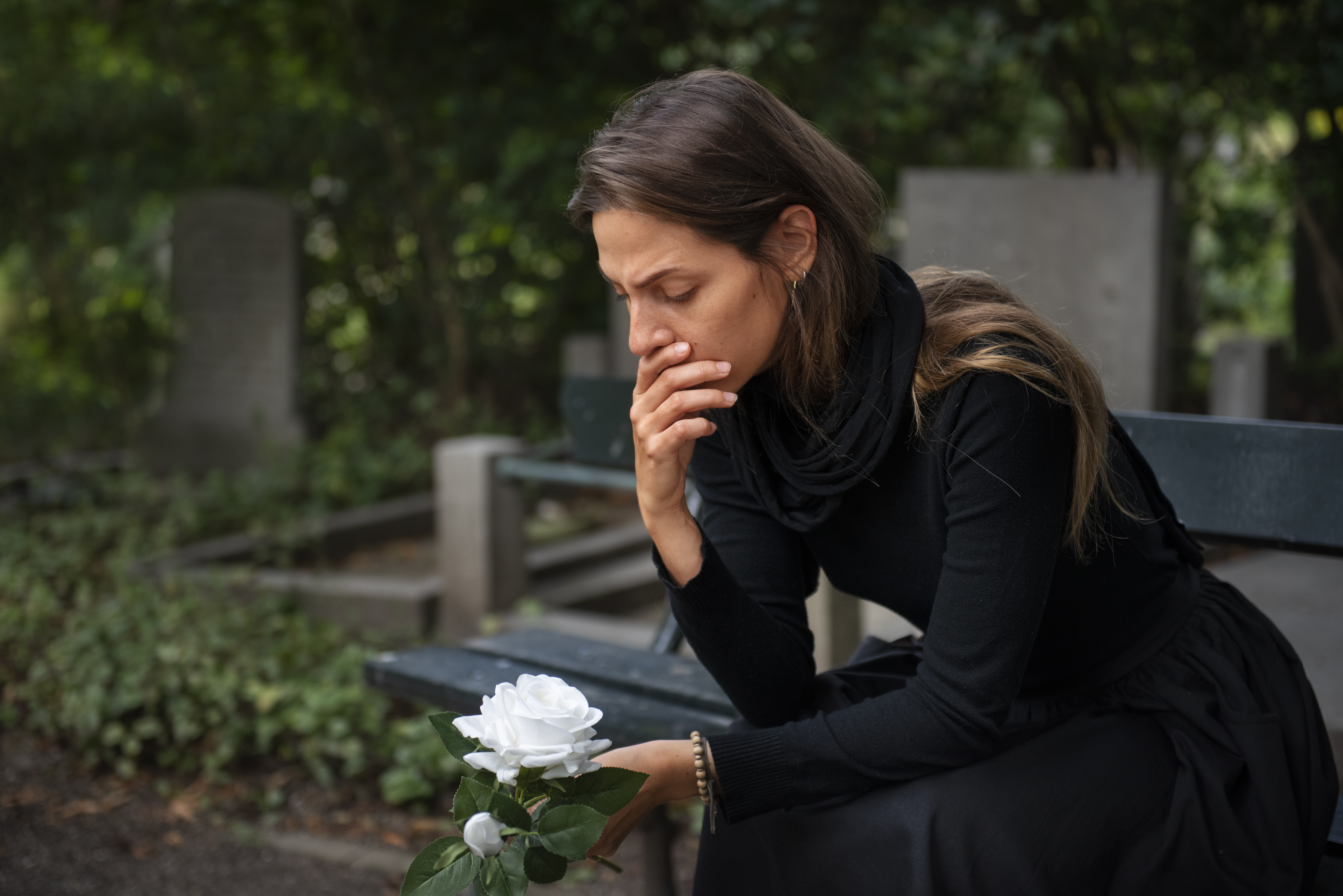Blog » Navigating the Grief Process

Grief is a profound emotion that often surfaces when we lose someone close to us. It’s a complex process that can leave us feeling overwhelmed, uncertain, and isolated. However, understanding the grief process can bring comfort and clarity during these challenging times. With compassionate support, families can find peace and understanding during difficult moments. By acknowledging the emotions that arise and finding ways to honor our loved ones, we can begin to heal and eventually move forward with hope.
Navigating the Grief Process: A Compassionate Guide for Families
The grief process is a personal journey that can affect every aspect of life when we lose someone we love. This journey often begins immediately after the loss and continues as families adjust to life without their loved one. Understanding the stages of grief and the emotions that accompany them is crucial during this challenging time. Although grief can be overwhelming, it is also a natural part of healing. With time, families can learn to cope and find ways to honor the memory of their loved ones.
Understanding the Grief Process
The grief process is unique to each individual. Feelings of sadness, anger, and confusion often emerge in unexpected ways. Recognizing that there is no "right" way to grieve is crucial, as each person's experience is valid. During this time, many people find solace in the support of family, friends, and professional counselors who can offer guidance and a listening ear.
Steps to Navigate Grief:
- Acknowledge the Pain: Recognize the pain that accompanies loss.
- Allow Time for Emotions: Give yourself permission to feel and express your emotions.
- Seek Support: Reach out to loved ones or professionals for help.
- Honor Their Memory: Find meaningful ways to remember your loved one.
- Embrace the Process: Healing is gradual and requires patience.
Key Considerations:
- No Specific Timeline: Grief does not follow a set schedule.
- Embrace All Emotions: It's okay to experience a range of feelings.
- Respect Individuality: Everyone’s grief process is different.
The Emotional Stages of Grief
The emotional stages of grief are often described as phases people experience when coming to terms with loss. These stages include denial, anger, bargaining, depression, and acceptance. It is important to note that these stages are not always experienced in order, and not everyone experiences all of them. However, they can provide a framework for understanding the emotions that arise during this time.
Stages of Grief:
- Denial: Shock or disbelief at the loss.
- Anger: Feelings of frustration or powerlessness.
- Bargaining: Reflecting on past events or "what ifs."
- Depression: Profound sadness and longing.
- Acceptance: Coming to terms with the loss and finding peace.
Key Points to Remember:
- Individual Variations: Not everyone goes through all stages.
- Non-linear Experience: The order of stages can vary.
- Recurring Emotions: Some feelings may resurface over time.
Supporting Loved Ones Through Grief
Supporting loved ones through grief is essential in helping them navigate their journey. It can be difficult to know what to say or do to help someone who is grieving, but the most important thing is to be there for them. Listening without judgment, offering a shoulder to cry on, and providing practical support can make a significant difference.
Ways to Support:
- Be a Good Listener: Offer empathetic and non-judgmental support.
- Help with Tasks: Assist with everyday chores and responsibilities.
- Respect Their Space: Give them the time they need for solitude.
- Encourage Professional Help: Suggest counseling if necessary.
- Be Patient: Understand that grief takes time and varies from person to person.
Additional Insights:
- Avoid Quick Fixes: Don’t try to “fix” their grief.
- Offer Long-term Support: Be there for the long haul.
- Respect Their Process: Honor their individual way of grieving.
The Role of Rituals and Memorials
Rituals and memorials play a crucial role in the grief process. They offer a way for individuals to honor and remember their loved ones. Whether it's a traditional funeral service, a celebration of life, or a small gathering of friends and family, these rituals provide an opportunity to say goodbye and find closure.
Memorialization Ideas:
- Host a Memorial Service: Gather to honor the life of the deceased.
- Create a Memory Book: Collect photos and stories to remember them by.
- Plant a Tree: Establish a living tribute in their memory.
- Light a Candle: Mark anniversaries or special dates.
- Donate in Their Name: Contribute to a cause they cared about.
Key Benefits of Rituals:
- Facilitating Closure: Rituals help in saying goodbye.
- Honoring Memories: They provide a way to keep the loved one’s memory alive.
- Involving Others: Rituals offer a communal experience in grieving.
Finding Hope and Healing
Finding hope and healing after a loss is a gradual process that requires time and patience. While the pain of grief can be overwhelming, it is also an opportunity for growth and reflection. Many people find that, over time, they can look back on their memories with love and gratitude rather than sadness. This shift in perspective is a sign of healing and a testament to the resilience of the human spirit.
Steps to Find Healing:
- Embrace Your Emotions: Don’t suppress what you feel.
- Seek Supportive People: Surround yourself with those who care.
- Start New Traditions: Honor your loved one in meaningful ways.
- Focus on Positive Memories: Cherish the good times you shared.
- Be Kind to Yourself: Remember that healing is a journey, not a destination.
Important Reminders:
- Healing Takes Time: There’s no rush to “get over” grief.
- Honor Your Loved One: Find ways to keep their memory alive.
- Your Path is Unique: Each person’s healing journey is their own.
When to Seek Additional Support
While grief is a natural response to loss, there are times when additional support may be necessary. If the pain of grief becomes too much to bear or if it begins to interfere with daily life, it may be time to seek the help of a professional. Grief counselors and therapists are trained to help individuals cope with the pain and provide valuable tools and strategies for navigating the grief process.
Signs You May Need Extra Help:
- Extended Sadness: Prolonged feelings of hopelessness.
- Daily Interference: Inability to carry out daily tasks.
- Intense Emotions: Overwhelming guilt, anger, or despair.
- Withdrawal: Avoiding social interactions or relationships.
- Thoughts of Self-Harm: Immediate help is crucial if this occurs.
Resources for Support:
- Counseling: Professional guidance from trained therapists.
- Support Groups: Connect with others who understand your loss.
- Hotlines: Get immediate support in a crisis.
Going Forward…
Navigating the grief process is one of the most challenging experiences a person can face. Yet, with time, support, and understanding, it is possible to find peace and healing. Each person's journey through grief is unique, and there is no right or wrong way to grieve. By honoring the memory of the loved one, seeking support when needed, and allowing oneself the time to heal, it is possible to emerge from the grief process with a renewed sense of purpose and hope.
Recent Blog Posts
- Eco-Friendly Cremation and Burial Options
- Direct Cremation in South Carolina and Why Families Prefer This Option
- Choosing a Funeral Home in South Carolina for a Stress-Free Process
- Burial or Cremation in Louisiana and Which Option Fits Your Needs
- Funeral Costs in New Jersey and Affordable Cremation Solutions
- Cremation Services in Louisiana and What Families Should Know
- Virtual Storytelling Ideas to Connect Generations
- Honoring Loved Ones with Meaningful Legacy Tattoos
- Healing Through Comfort Foods From Around the World
- How to Support a Friend Through Grief from a Distance
